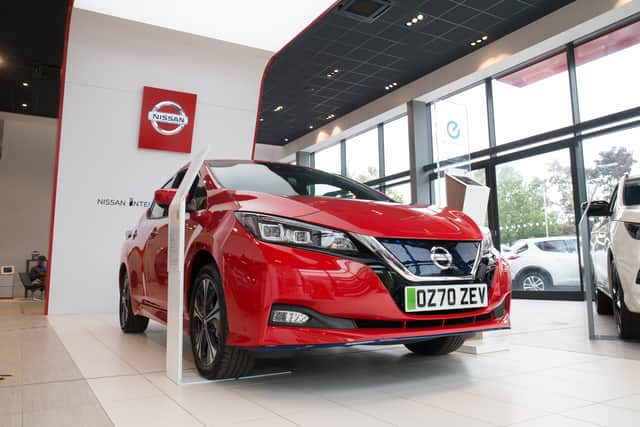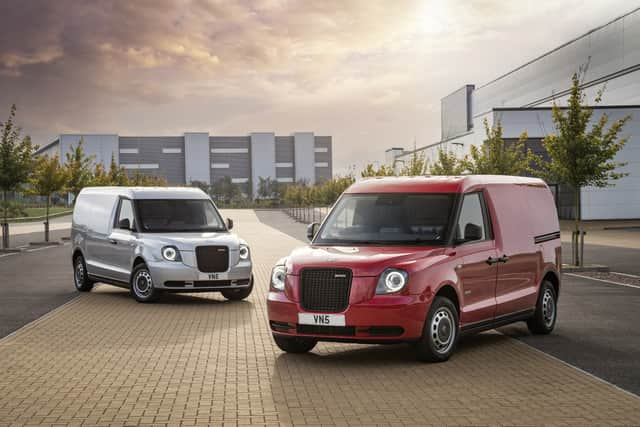Plug-in car grant: has government’s electric cars discount been axed - what happens if you’ve already applied?
and live on Freeview channel 276
The UK’s plug-in car grant (PiGC) for electric cars has been scrapped with immediate effect.
The Department for Transport (DfT) announced on 14 June that it was ending the EV incentive scheme after 11 years, during which time it has shrunk from £5,000 to £1,500.
Advertisement
Hide AdAdvertisement
Hide AdThe Government said the success of the scheme in encouraging drivers to switch to electric cars meant it could now “refocus” funding to improve EV adoption in other areas of transport.
However, the motor industry warned the change sends the wrong message to car buyers.


Announcing the closure of the scheme, the DfT emphasised that the incentive programme was always intended as a temporary measure and said that repeated reductions in the grant “have had little effect on rapidly accelerating sales, or on the continuously growing range of models being manufactured”.
Sales of fully electric cars have gone from 1,000 per year when the scheme was launched in 2011 to almost 100,000 in the first five months of 2022.
Advertisement
Hide AdAdvertisement
Hide AdEVs accounted for 12% of all new car registrations in May, up nearly 18% on May 2021, while petrol registrations fell 25% and diesel fell 50%.
The DfT said that all existing applications for the grant will be honoured, as will any applications linked to sales made in the two days prior to the scheme closing.
Since its inception, the PiCG has provided £1.4 billion of funding and has been used in the purchase of almost 500,000 low or zero-emissions cars.
Transport Minister Trudy Harrison said the Government’s focus would now shift to charging infrastructure and other types of electric vehicle.
Advertisement
Hide AdAdvertisement
Hide AdShe said: "Government funding must always be invested where it has the highest impact.
"Having successfully kickstarted the electric car market, we now want to use Plug-in Grants to match that success across other vehicle types, from taxis to delivery vans and everything in between, to help make the switch to zero emission travel cheaper and easier."


The DfT says £300m of grant will be “refocused” on helping the purchase of plug-in taxis, vans, trucks, motorcycles, and wheelchair accessible vehicles.
It also says cutting the PiCG will also allow it to target expanding the UK’s patchy public charging network, although it has not announced any additional funding to do this.
Advertisement
Hide AdAdvertisement
Hide AdMike Hawes, chief executive of the Society of Motor Manufacturers and Traders said the decision came at “the worst possible time”. He said: “The decision to scrap the Plug-in Car grant sends the wrong message to motorists and to an industry which remains committed to Government’s net zero ambition.
“Whilst we welcome Government’s continued support for new electric van, taxi and adapted vehicle buyers, we are now the only major European market to have zero upfront purchase incentives for EV car buyers yet the most ambitious plans for uptake.”
The grant was initially £5,000 and applied to all plug-in vehicles, including hybrids. However, successive changes have reduced the grant amount and tightened eligibility criteria. In the most recent changes, the grant was cut from £2,500 to £1,500 and the maximum price of eligible EVs cut from £35,000 to £32,000.
Despite this, the DfT says that there are now 24 models beneath this price point, up from 15 last year.
Advertisement
Hide AdAdvertisement
Hide AdThe RAC’s head of policy Nicholas Lyes said prices needed to continue to fall to make EVs accessible to more drivers.
He commented: “The UK’s adoption of electric cars is so far impressive but in order to make them accessible to everyone, we need prices to fall.
“Having more on the road is one important way of making this happen, so we’re disappointed the Government has chosen to end the grant at this point. If costs remain too high, the ambition of getting most people into electric cars will be stifled."
